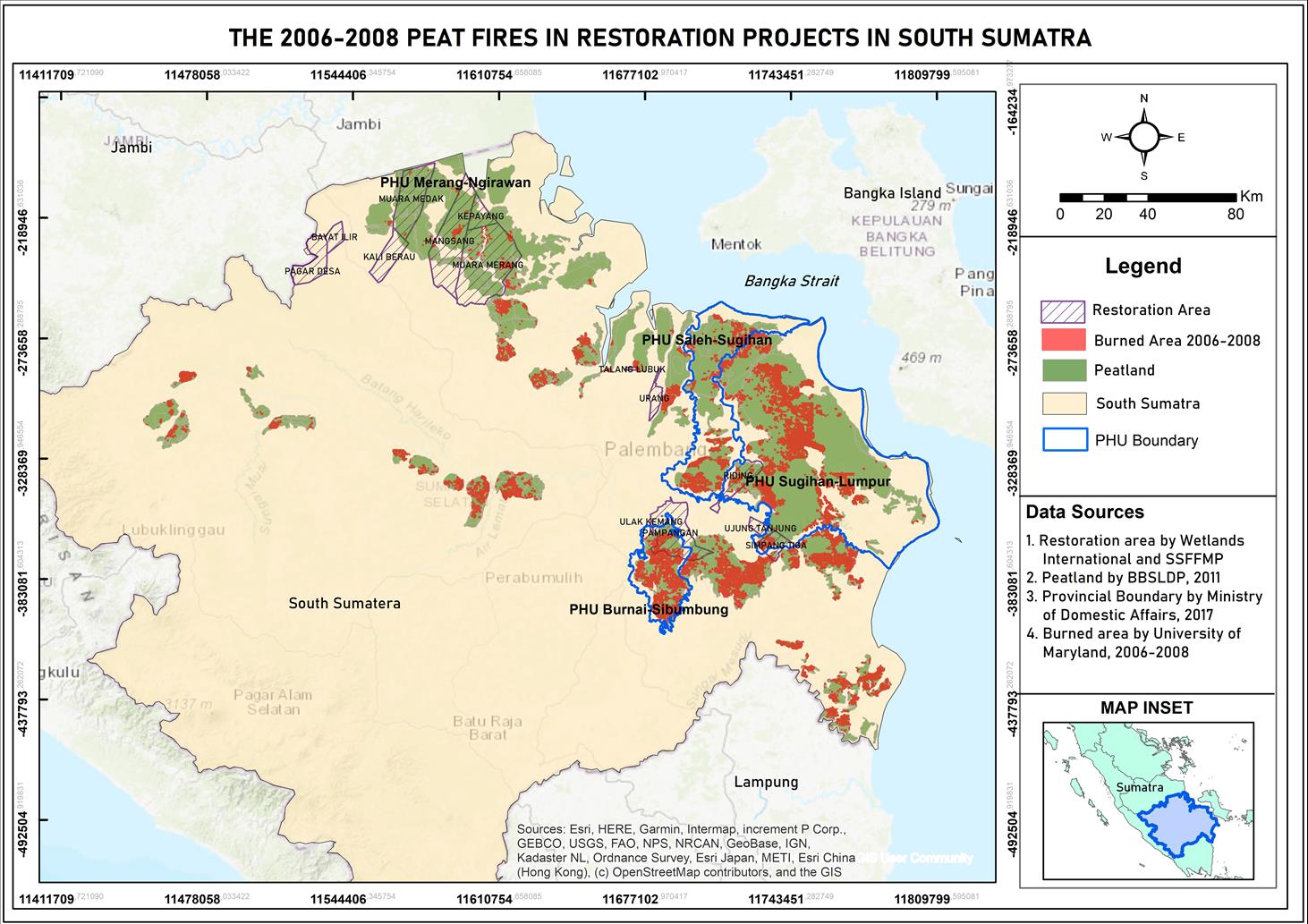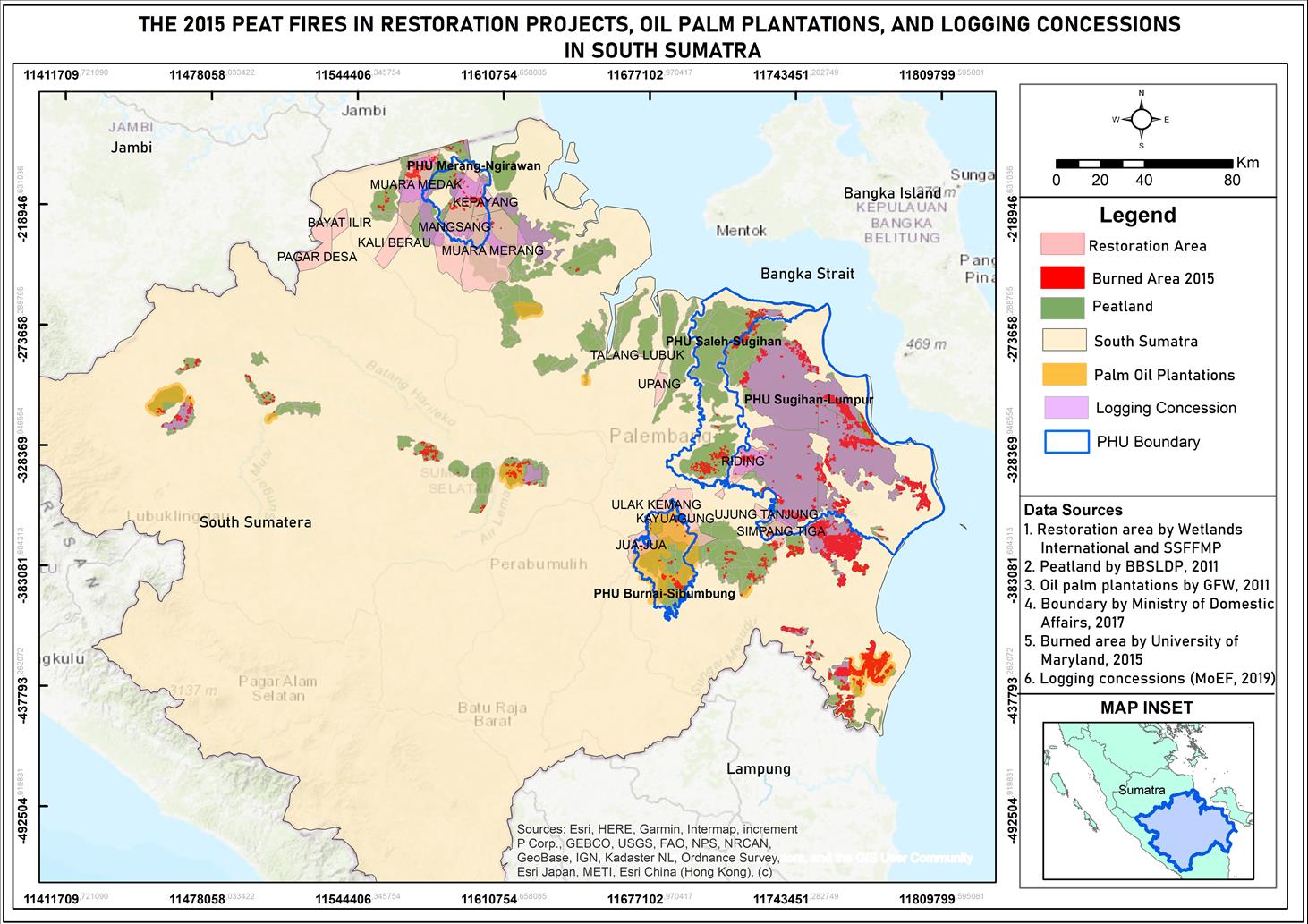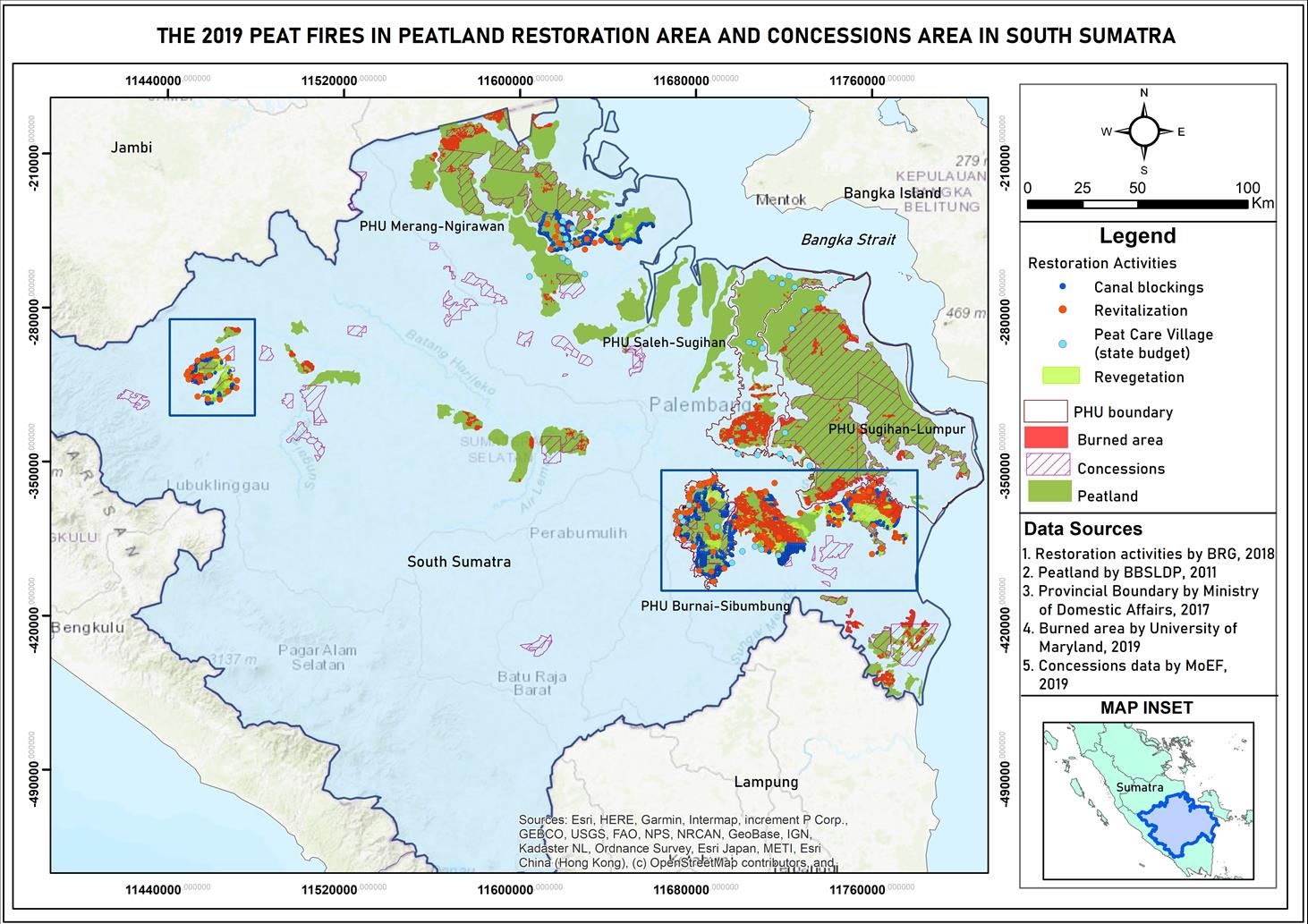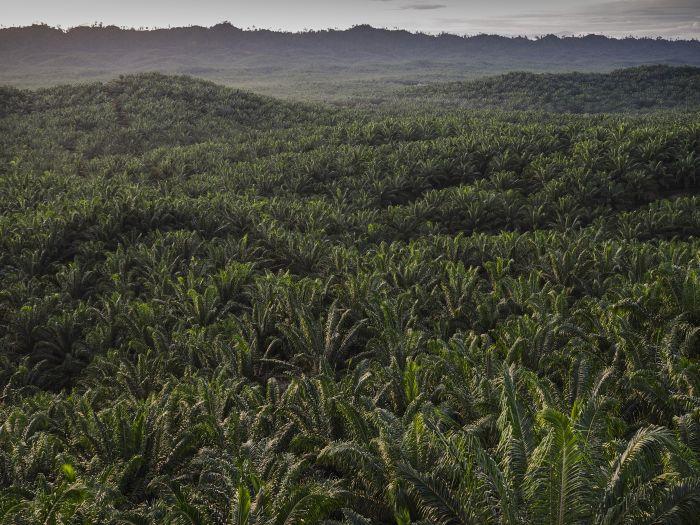
Lessons from South Sumatra: extend the palm oil moratorium to restore peatlands and prevent fires
(MENAFN- The Conversation) The Indonesian government has ended a moratorium on releasing new palm oil plantation permits in protected forest and peatlands. To replace this policy and to deal with issues around sustainable palm oil production, the government will apply existing regulations under the Jobs Creation Law passed last year.
The use of this law could jeopardise peatland restoration in Indonesia, home to third-largest tropical peat ecosystems in the world .
The Job Creation Law does not include a clause to halt the issuing of new palm oil plantation permits. It only specifies a 100,000 hectare/ha (247,105 acres) limit for a new palm oil plantation. It does not limit how many new plantations are allowed per year, in peatlands.
The moratorium policy is needed to restore the country's peatland to prevent deadly forest fires – even though some challenges need to be addressed beforehand.
Our recent study in South Sumatra showed how the 2015-2018 moratorium reduced the rate of peatland conversion by about 24% compared to the 2000s period. Since 2011, the policy has also played a role in decreasing the number of peat fires.
Moratorium and peatland conversionExpansion of palm oil plantations has caused peatland to be drained and converted, making it prone to fires. In 2006–08, around 301,454 ha of peatlands were burned in South Sumatra.

The 2006-2008 peat fires in South Sumatra. World Resources Institute
The area of peatland conversion in South Sumatra is the third-largest in Indonesia after Riau and Central Kalimantan. From 2003 to 2010, around 320,000ha of peatlands in the province were cleared to make way for 16 palm oil plantations. Additionally, around 12 logging concessions had been granted on 485,552ha of peatland.
In 2011, the government issued a moratorium for business permits on peatland.
President Joko“Jokowi” Widodo extended the moratorium from 2017 to 2019 . This contributed to the decrease of fires in South Sumatra by 80% in 2016-2018 (28,635ha ), compared to 2015 fires.

13,061 ha peat fires in oil palm plantations in 2015; World Resources Institute
Although the extension cannot fully stop peatland conversions, it significantly reduced the rate of conversion in peatland by 24% – from 45,714ha per year in 2003-2010 to 34,587ha per year in 2015-2018
In August 2019, Jokowi stipulated Presidential Instruction No. 5 of 2019 to stop new licenses to convert peatlands, as an improvement of the moratorium policy.
Moratorium can increase restorationExtending the moratorium can help ensure restoration progress, especially in plantation concession areas.
In 2016, the government targeted 656,884ha of peatland , mostly located in concession areas, in South Sumatra to be restored by 2020.
As of 2018, the Peatland Restoration Agency had restored 102,902ha .
Restoration has been slow in concession areas due to excessive bureaucracy . Although the Peatland Restoration Agency had provided technical assistance with restoration to concession holders, the Ministry of Environment and Forestry was slow to approve restoration plans.
By 2018, the MoEF had yet to approve any official restoration plans for concession holders in South Sumatra.

Slow progress on restoration in concession areas contributed to peat fires. World Resources Institute
Extending the moratorium policy can reduce the rate of peatland conversion to concessions. It means the government can focus on existing concession areas to restore degraded peatlands in these areas.
Without the moratorium, the rate of peatland conversion will increase, and it will also increase degraded peatland to be restored. Peat conversion to logging and plantations involves persistent and intensive drainage that causes extensive peatland drying and degradation.
Extend moratorium to support restoration and reduce firesPeatland conversion to concessions – including palm oil plantations – must cease, restoration in concession areas must be accelerated, and governance must be improved to increase the impact of restoration efforts.
Extending the moratorium and adding stronger law enforcement at the local level are important to support peatland restoration and prevent peat fires.
This will also strengthen Indonesia's commitment to reduce deforestation and peatland conversion and in turn reduce country emissions to mitigate climate change.

Legal Disclaimer:
MENAFN provides the
information “as is” without warranty of any kind. We do not accept
any responsibility or liability for the accuracy, content, images,
videos, licenses, completeness, legality, or reliability of the information
contained in this article. If you have any complaints or copyright
issues related to this article, kindly contact the provider above.


















Comments
No comment